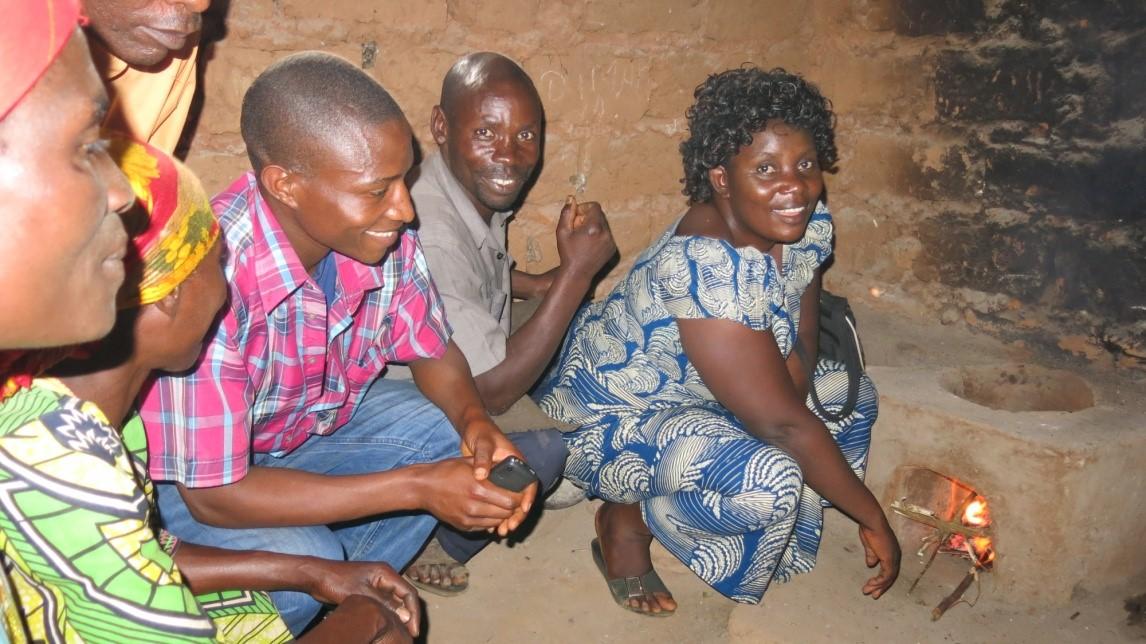This CRAG Project aims to improve climate change resiliency and improve economic conditions at the site of the Ruvyimvya hill landslide through sediment control, forest management, improved cook stoves, and capacity building.
Overview
The start of CRAG project in Burundi slightly coincided with an unfortunate event. A landslide on Ruvyimvya hill swept away lives and left survivors in helpless situations. Setting up the project on Bitare Sub-hill of Ruvyimvya Mountain has been seen by the population as a good solution to the multiple problems caused by climate change.
In late 2015, the population in Ruvyimvya hill of Bubanza Province was sleeping peacefully when suddenly, land blew down due to landslides. This marked the genesis of the CRAG project in Burundi.
“I never thought that rainstorm might cause such damages”, testifies a survivor of the tragedy who has not yet recovered the full use of his left hand. Ndereyimana Emmanuel was buried beneath landslides but luckily rescued by his neighbors after several hours of research. His wife and child did not survive.
On the evening of the tragedy, a big black cloud formed in the dark sky of Kibira, overlooking the Ruvyimvya mountain chain. Emmanuel Ndereyimana and neighbors hurried into their homes to shelter from the storm. A tempestuous and heavy rain began to pour down on the village and its habitants.
That night, the village heard a loud noise and within seconds, six households were buried by a landslide.
Survivors cries alerted neighbors who hurried to rescue those who might still be alive. Damage was considerable: six people died and many others are now permanently disabled.
One year after the tragedy, the CRAG project in the Kivu and Risizi Basin was born. The Climate Change Resilience Altitudinal Gradients (CRAG) concept applies various conservation approaches and activities, such as integrated water management; ecosystem-based adaptation to climate change; soil erosion, pollution and forest management; and community livelihoods, which have impact across a landscape gradient in ways that directly benefit human wellbeing and environmental biodiversity. This CRAG Project aims to improve climate change resiliency and improve economic conditions at the site of the Ruvyimvya hill landslide through sediment control, forest management, improved cook stoves, and capacity building.
This project is funded by Mac Arthur Foundation and implanted by Birdlife International through its partners on ground: Association Burundaise pour la protection de la Nature (ABN) in Burundi, Association pour la Conservation de la Nature au Rwanda (ACNR) and Horizon Nature (HN) in the Democratic Republic of Congo.
The project started with the construction of a nursery of 158,000 Grevillea plants and 38,000 Prinus Africana plants. The Prinus Africana were chosen to reinforce the separation of Kibira National Park from farm properties. The Grevillea were chosen as they coexist well with other crops. These trees will reduce soil erosion and landslides, while also supplying needed wood to the population. Within 5 or 6 years, households should get mature trees on their own lands, ready to be cut.
To prevent soil erosion along the river banks, bamboo trees were also planted along seven miles of the Mpanda and Gashishi rivers.
Other activities implemented range from improved stoves to the capacity building for the communities.

Improved cook stoves have been constructed for 2000 households of Ruvyimvya, Bitare and Muyebe villages. This has reduced firewood collection from the Kibira forest reserve by half, and thus ensuring the protection of the trees in the forest. This project also distributed fruit tree seedlings as part of efforts to reduce poverty.
This project is considered complete and, so far, it has positively impacted the community. For more information on this project, please see the link below.
This success story was provided by Jean De Dieu Bucankura.